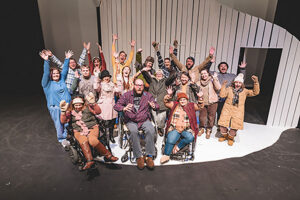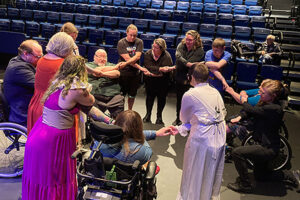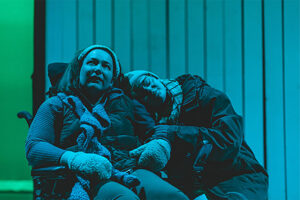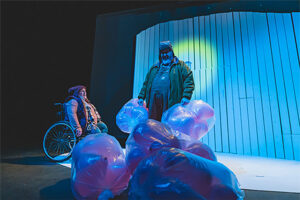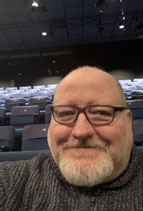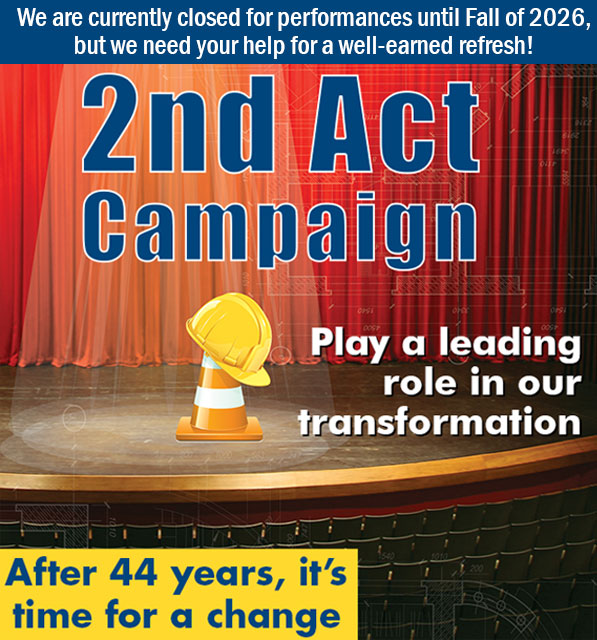Area actor, director, playwright and singer Steve Sykes (he/him) served as the 2024-2025 Our Stage / Our Voices Artist-in-Residence. During his residency, Mr. Sykes, a wheelchair user, increased opportunities for members of central Illinois’ disabled community to enjoy and participate in theater.
In July/August, Steve partnered with Capital City Improv to offer an improv workshop series designed to be enjoyed by individuals with disabilities, both invisible and visible. Everyone had a great time learning all about the first rule of improv, “yes, and…,” and how to incorporate that idea into a series of improv games, concluding the experience with a sharing session for family and friends. The workshop series was featured in this article from the Illinois Times.
In November, Steve hosted a showcase performance event in the UIS Studio Theatre. All Access: A Show for Every Body featured performers with disabilities. Themes of disability and inclusion were explored and celebrated.
In March 2025, Steve directed Almost, Maine in the UIS Studio Theatre featuring a cast of seventeen disabled and nondisabled performers, providing a unique perspective on John Cariani’s play. Among a large and varied audience across the four performances were senior staff members of the Illinois Arts Council, whose Executive Director, Joshua Davis-Ruperto, sent this note following the visit:
“The Illinois Arts Council’s visit with UIS Performing Arts Center’s amazing staff, along with the experience attending the Our Stage/Our Voices theatre performance of Almost, Maine was truly eye-opening. It was inspiring to witness how the UIS Performing Arts Center has created an inclusive environment, ensuring that every person, regardless of ability, can participate and experience the magic of live theatre. This experience reaffirms the transformative power of the arts and the importance of accessibility in making culture available to all Illinoisians.”
